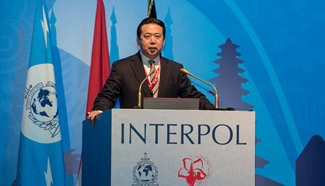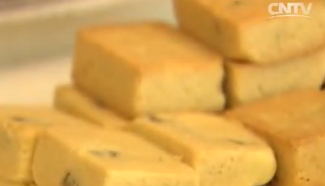BEIJING, Nov. 10 (Xinhua) -- Chinese shares rebounded strongly on Thursday joining a global market recovery from the shock of U.S. Republican Donald Trump's victory in the presidential election.
The benchmark Shanghai Composite Index reversed its previous mild loss to gain 1.37 percent to hit 3,171.28 points, the highest in around ten months.
The smaller Shenzhen Component Index closed 1.16 percent higher at 10,821.66 points. The ChiNext Index, which tracks China's NASDAQ-style board of growth enterprises, climbed 0.92 percent to close at 2,143.32 points.
Total turnover on the Shanghai and Shenzhen bourses amounted to 654.3 billion yuan (96,38 billion U.S. dollars), slightly higher than the 653.6 billion yuan the previous trading day.
Shares in the oil, textile and machinery sectors led the rally. China Petroleum & Chemical Corporation, owned by the country's largest oil refinery, rose 1.22 percent to 4.99 yuan.
The gold sector, which had been favored by investors before the election results, suffered huge losses. Leading gold producer Zhongjin Gold Corp. shed 5.11 percent to finish at 13.92 yuan.
The stellar performance of China's A shares was among bullish Asian markets as many share benchmarks returned to growth, including Japan's Nikkei index, the Republic of Korea's Kospi and Hong Kong's Hang Seng.
Before the opening of Asian markets, the U.S. market had stabilized from plunges as Trump's victory speech eased market nerves and Wall Street further digested information about the election results.
At the close on Wednesday, all three major indices posted solid gains, marking a three-day winning streak. The U.S. dollar also recovered from an overnight sell-off.
Although the global market appeared to have calmed, analysts believe the economic uncertainty will linger.
"The dollar will likely rise against currencies in emerging and resource-producing countries... we expect heightened uncertainty in the financial markets to lead to a further delay in a rate hike in the United States," said Koji Nagai, CEO of Japanese securities trader Nomura Holdings.
The Chinese currency, the renminbi or yuan, weakened against the U.S. dollar for a fifth straight day on Thursday with its central parity rate at 6.7885.
"The yuan will continue to see volatility in the short term, but Trump's victory will help relieve depreciation pressures in the long run, as well as lessen capital outflow," said a report from Anbound Consulting.
Trump's inclination for trade protectionism also jittered the market as already-sluggish global trade may be further curbed and the world's major exporters, including China, will suffer.
But Yan Se, a professor at Peking University, said China should prepare for risks, but there is no need for pessimism.
"We can strengthen multilateral cooperation to settle trade frictions, and the Chinese economy, increasingly driven by internal demand, is less dependent on trade with the United States. The economy is resilient and can stand the pressure," Yan said.
HSBC economist Ma Xiaoping said Trump's policies of expanding fiscal spending and reducing taxes will stimulate the U.S. economy, which may drive the country's demand for Chinese products, bringing a boon for China's exports.
Chinese Foreign Ministry spokesperson Lu Kang said Wednesday the country expects to make joint efforts with the new U.S. government to maintain the sustained, healthy and stable growth of China-U.S. relations.
"During the U.S. presidential election campaign, there were some arguments saying China-U.S. trade had affected employment of the American people," Lu said. "In fact, bilateral trade had brought benefits to the two peoples and increased employment in the United States."
Bilateral trade has surged from over 2 billion U.S. dollars in the 1970s to more than 500 billion U.S. dollars last year. China became the largest trading partner of the United States in 2015.










